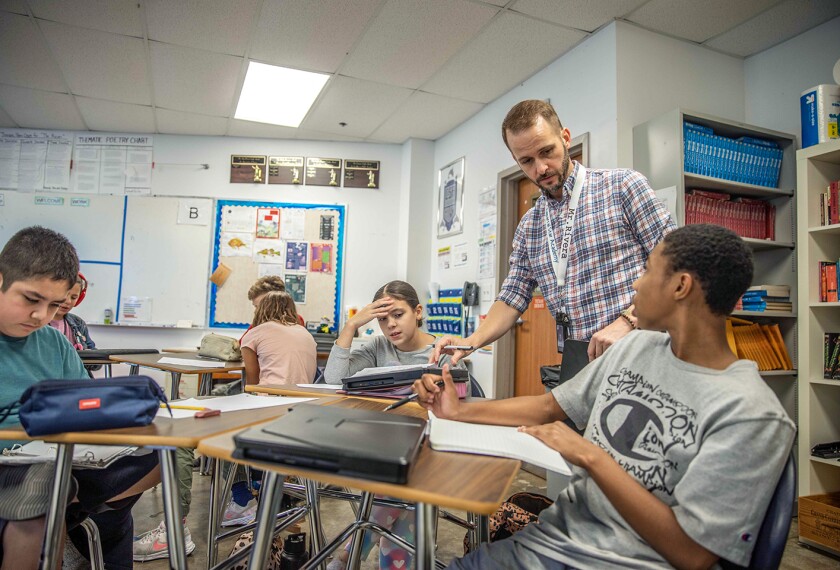The first-ever EdWeek Teacher Morale Index stands at -13, on a scale ranging from -100 to +100, with higher scores indicating more positive feelings about the profession.
The index, a multi-faceted measure of teacher satisfaction, is a central feature of Education Week’s new project, The State of Teaching. It gauges teachers’ levels of confidence and enthusiasm about their work based on responses to three survey questions that were part of a larger, nationally representative poll of nearly 1,500 teachers last October.
This year’s score suggests that on average, teachers are feeling more negatively than positively about their jobs. But why exactly is teacher morale so low?

New national data on the teaching profession, vivid reporting from classrooms, and resources to help support this essential profession.
There are, of course, many reasons, including low salaries, heavy workloads, and a lack of support. The State of Teaching explored many of those themes.
To dig in a little deeper, Education Week reporters asked five teachers from across the country to share the hardest parts of teaching in recent years, as well as what they see as the biggest misconceptions about their jobs.
These answers have been edited for length and clarity.
What has been the hardest work-related challenge in the past two years?
—Sofia Alvarez-Briglie, a 7th grade science teacher at Alcott Middle School in Norman, Okla.
—Jacqueline Chaney, 2nd grade teacher at New Town Elementary in Owings Mills, Md.
—Griselle Rivera-Martinez, an English-for-speakers-of-other-languages teacher at Enterprise Elementary School in Enterprise, Fla.
—Frank Rivera, a middle and high school English/language arts teacher at Chaparral Star Academy in Austin, Texas
What is one thing the public misunderstands about the work of a teacher?
—Helen Chan, a 4th grade math teacher at South Loop Elementary School in Chicago
—Rivera-Martinez
—Alvarez-Briglie
—Rivera













